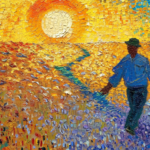An excerpt from an upcoming article Shimelis Mulugeta Kene and I wrote
Although seldom framed and understood as such, the current political conflict in Ethiopia has its roots in disagreement among the elite on how to narrativize Ethiopian history.
Nation-building is a contested process of narrative construction. In his book, Imagined Communities, Anderson reminds us that nations are “imagined political communities”. Common to all political communities is a set of beliefs in unifying narratives about community special characteristics. These narratives provide explanations to the participating individuals and their leaders what makes their community unique, especially when compared to others.
The path to consensus is neither linear nor guaranteed. Consensus is especially difficult to achieve in a nation as ethnically, culturally, and linguistically diverse as Ethiopia. This has become a singularly arduous task especially now that a generation of Ethiopians have grown up in an EPRDF Ethiopia, who are more and more alienated from actual inter-ethnic-lived experiences of Ethiopians of present and past generations. It is also naive to expect the debate to remain even-tempered. Emotions can run high as communities attempt to reconcile their ethnic identity and group status as they negotiate the meaning of their shared history with others. However, prerequisites to making meaningful progress are high-trust communication mediums, shared facts, and shared goals. At the moment, the opposite appears to be true.
Social media and narratives of hate have made an already challenging process significantly more difficult. It is no more the traditional intellectual-elite class that engages in the production and dissemination of information that advances knowledge. Unlike the closely-knit intellectual class of earlier times, the debate now has a diverse body of actors: activists, political party operatives, and, as oxymoronic as it sounds, intellectual-activists. The elites with the loudest voices use low-trust and high-reach communication mediums like Facebook, Twitter, and other social media to peddle their own facts and pursue their own agenda. Social media as it exists today rewards absolute claims, purity, good and evil binaries, and unequivocal declarations of truth that leave little room for compassion, reasoning, careful interpretation, and nuance. Fueled by algorithms that favor combustible content, social media companies orchestrate human interaction that lead individuals to maintain extreme positions and be adversarial towards one another.
The emerging Ethiopian elites in both camps have harnessed social media in ways that have yielded extraordinary influence and power over political discourse that directly and indirectly affects the lives of everyday Ethiopians. They recognize their charisma is more significant to their audience than the contents of their speech or the quality of their argument. Name-calling, and ad hominem attacks, are their currency and they invoke current and historical grievances, and narratives of superiority to stoke fear and anger. Unfortunately, the narratives these elites broadcast are not without consequences. There is a correlation between recent violence in Ethiopia and the supposed adherents of these narratives.





1 Pingback